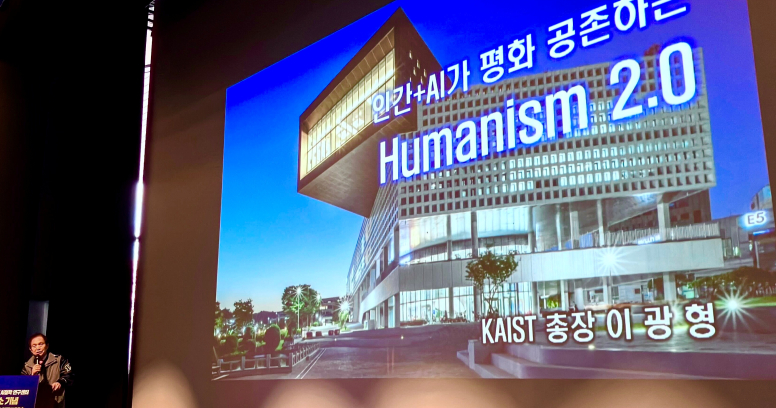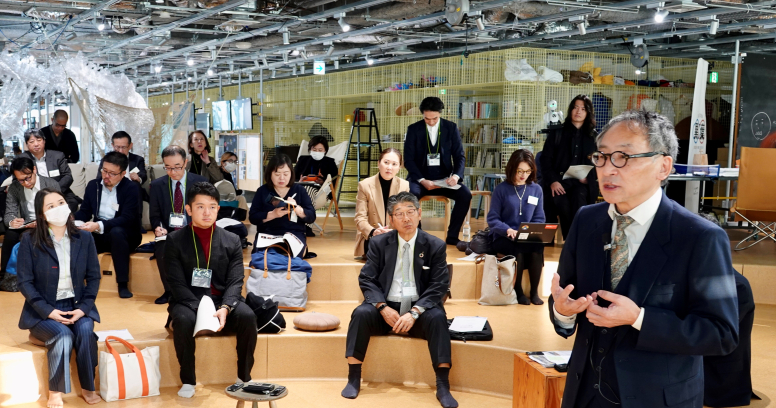【Relay Interview 1】Prof. Yasuo Deguchi of Kyoto University:Chapter 1 “A new technology requires a new philosophy.” This idea has gained momentum, and a new research institute has been established

The Institute is interviewing its key members in a relay format about what led them to begin this initiative and their thoughts on its future endeavors. Our first interviewee is Professor Yasuo Deguchi of Kyoto University, who also serves as Co-Chairperson of the Kyoto Institute of Philosophy.
Details
Interviewer: Could you share with us the background behind establishing the Kyoto Institute of Philosophy?
Deguchi: The initiative began with an idea of Jun Sawada, the Executive Chairman of NTT and Co-Chairperson of the Kyoto Institute of Philosophy. It was the summer of 2019, just before the onset of the COVID-19 pandemic. At the time, Mr. Sawada was serving as President of NTT and had recently announced the next-generation communications platform "IOWN." I vividly recall our conversation when we first met at Kyoto University.
"New technologies are emerging one after another. In the future, we may even be able to create ‘digital twins’ of people, allowing us to converse with those who have passed away. However, is it truly advisable to deploy these technologies so uncritically without going back to first principles and reconsidering what it means to be human, and what it means to have a self?"
At that time, I was involved in several industry-academia collaboration projects at Kyoto University and recognized a clear need for philosophy and the humanities within the industrial realm. At the same time, I felt that philosophy risked becoming mere "philosophy for philosophy's sake," confined to an academic circle. This concern applied to my own work as well, and I believed that, left unchecked, it could reach a dead end. I began wondering if we could spark a new direction in philosophy and engage with topics that extend beyond the discipline itself.
When I first met with Mr. Sawada, we agreed to launch joint research projects, given that NTT and Kyoto University had already signed a comprehensive collaboration agreement. Simultaneously, we set up a framework for regular, wide-ranging exchanges of ideas.
Then, in January 2023, I met Mr. Sawada with a few colleagues at a restaurant in Pontocho, Kyoto. Mr. Sawada began by saying, "I want to establish a research institute together with you."
Mr. Sawada explained why he had thought of co-founding a research institute: "Because a new technology requires a new philosophy."
Those words were almost exactly what I had said when I first met Mr. Sawada in the summer of 2019, which clearly struck a chord with him. I had no reason to turn down his proposal.
Interviewer: There are many industry-academia collaborations in Japan and abroad. What makes the Kyoto Institute of Philosophy unique?
Deguchi: In most cases, industry-academia collaborations focus on science and engineering. Even within the broader category of what we call the humanities and social sciences, collaboration has been comparatively more advanced in fields like psychology, policy studies, and economics. Consequently, there has been relatively little collaboration between philosophy─which is a deeply humanistic field, often seen as removed from everyday society─and the industrial sectors. Such collaboration is not entirely nonexistent, but it remains rare.
Industry operates at the forefront of "value," because if a company fails to produce something marketable, it goes out of business. Essentially, anything that sells has value. Companies must look five or ten years ahead and propose to society, “this is the value we stand behind.” That’s why it’s worthwhile to explore the essence of value philosophically with those in the industrial sector.
Another distinguishing feature of our institute is that we established an independent general incorporated association outside the university. Within this association, we conduct joint research with industry on profoundly fundamental questions—such as “what is a human being?” and “what is value?”—in a setting separate from the university. By positioning ourselves in the public sphere this way, we underscore our strong commitment to engaging with society and influencing it in multiple ways.
Interviewer: In addition to NTT, several other companies agree with the purpose of the foundation, and the circle of collaboration is expanding.
Deguchi: When I speak with people both in Japan and abroad, they often express surprise: “Why are large corporations collaborating with philosophy?” This is probably because Japan—and, more broadly, the rest of the world—is facing major obstacles. Until recently, it seemed sufficient to adopt the “values” advocated by the United Nations—such as the SDGs (Sustainable Development Goals). However, this is no longer viable, and the values we should pursue have become unclear. It’s not just a handful of corporate leaders who feel this way; an entire cohort has begun to speak out. In other words, we’re entering an era of widespread uncertainty about what it means to speak of “values.”
Others



